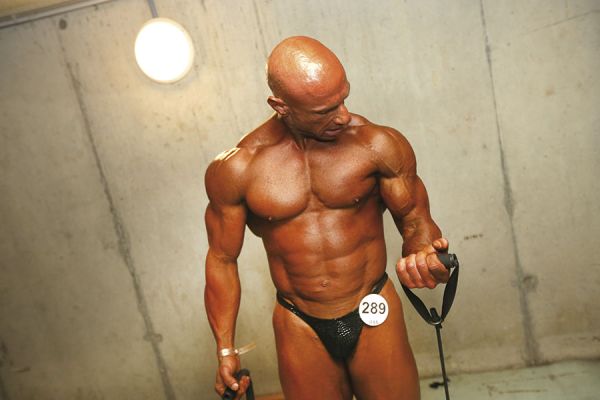How many times a week should you train a muscle?
EVERYTHING DEPENDS on your answers to some initial key questions. The fact is, if you wish to make gains you have to take into account a number of factors. For developing your physique, there are 3 things to consider:
- Stimulus (training)
- Nutrition (meals)
- Recovery time (i.e. rest)
In other words, the process of growth depends on a chain of events. Firstly, training provides the stimulus that forces your body to adapt and change. The nutrients you consume then provide energy and the raw materials for growth. And, of course, the body then requires time to adapt and grow. It’s a virtuous cycle. Eliminate or reduce some of these factors and progress will stall.
So the first thing to understand is that training provides the spark that sets off this whole process (or not, as the case may be) in the body. But as you’re no doubt aware, many people are impatient and expect everything to happen quickly and easily.
Before addressing this, let’s be clear – this article applies only to advanced trainers, which can be defined as 3-4 years of SERIOUS training. This article is not valid for beginners and intermediates. There are other features in Muscle & Health relevant to them.
To make rapid improvements, should you train the same muscle several times a week? Well, in principle the logical answer is you can train as often as you like once a muscle has completely recovered. But this is where things become complicated: after all, how do you know when a muscle has fully recovered? This takes us into a controversial area because most of us go by how a muscle feels while others say you can only be certain by undergoing objective diagnostic tests. In an ideal world you would therefore be able to have tests that measure your blood lactate (not conclusive of course), resting body temperature (also inconclusive), muscle glycogen levels (partially valid but impracticable), resonance of high muscular quality (logically valid but totally out of reach today)… so in conclusion we can only judge subjectively according to how our bodies feel because, as we can see, objectively it is not possible to be certain.
Different factors, including genetics, determine the ideal recovery time and what is ideal for one person is not ideal for another. I know that some will say studies showing large muscles take so many hours to recover and small muscles take less time. Such facts are useful, but it boils down to the each person’s specific circumstances (genetics + adaptation) so we can’t talk about an average recovery time. Another main problem is deciding would is considered to be “recovery”. If it is the time it takes to increase muscle mass, it may be a lot longer than the time it takes for the damage caused by exercising a muscle to repair. In any case, the answer relates to those three factors that opened this article:

1. TRAINING (stimulus)
This depends on how hard you train. And we are not referring here to time, kilos, speed of lifting, rest intervals, technique etc … If you train with high intensity and inflict sufficient damage to the muscles you can train for less times than if you train with less intensity. Therefore, you can not train for a set amount of time at two different routines that have different levels of intensity and expect them to work the same.
2. NUTRITION (food)
You need to replace the energy you lose from training and also have enough left over to carry out daily activities otherwise your body will not recover as quickly. We are referring not only to the total amount of calories, but also the timing of meals, the macronutrient proportions, the total amount of protein, micronutrient intake etc. Againl you will not recover as well if your diet is not perfect.
3. REST
This refers to several factors, not only time spent sleeping but also to the daily activities you carry out when you are not training. Some jobs prevent the body from recovering optimally (manual work etc). It also includes the quality of sleep or rest. All these factors will determine how much time it takes to recover until your body is ready to train again.

